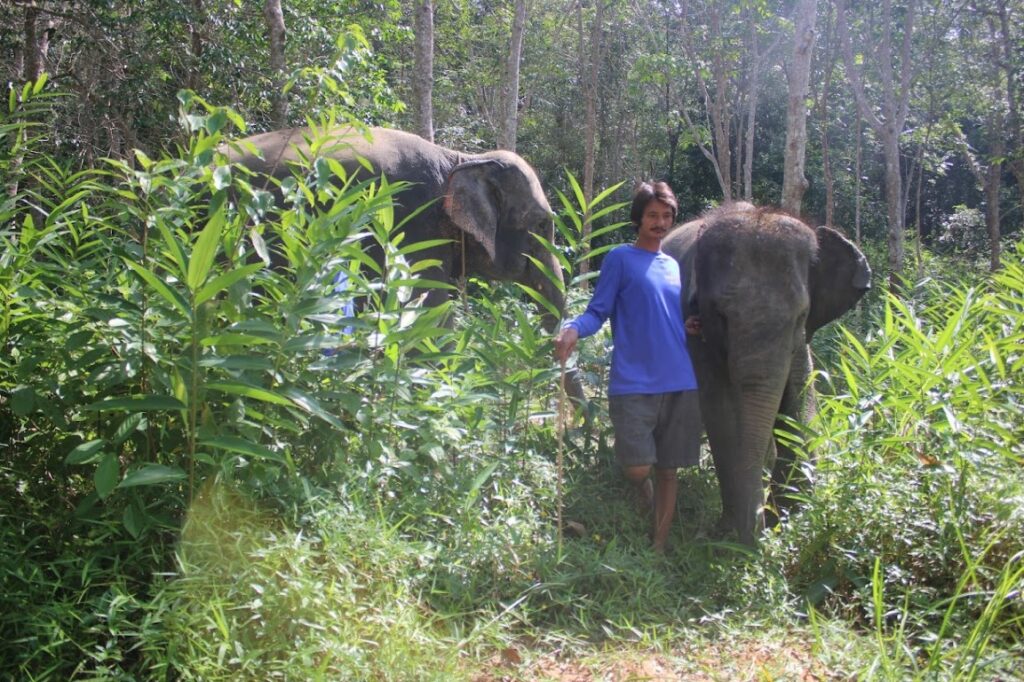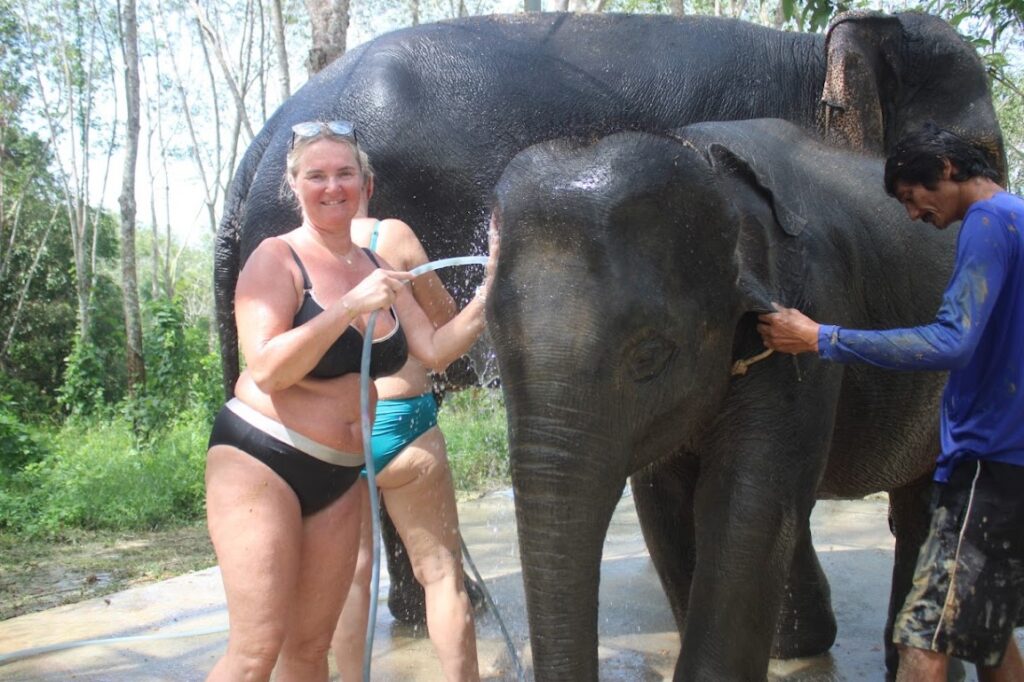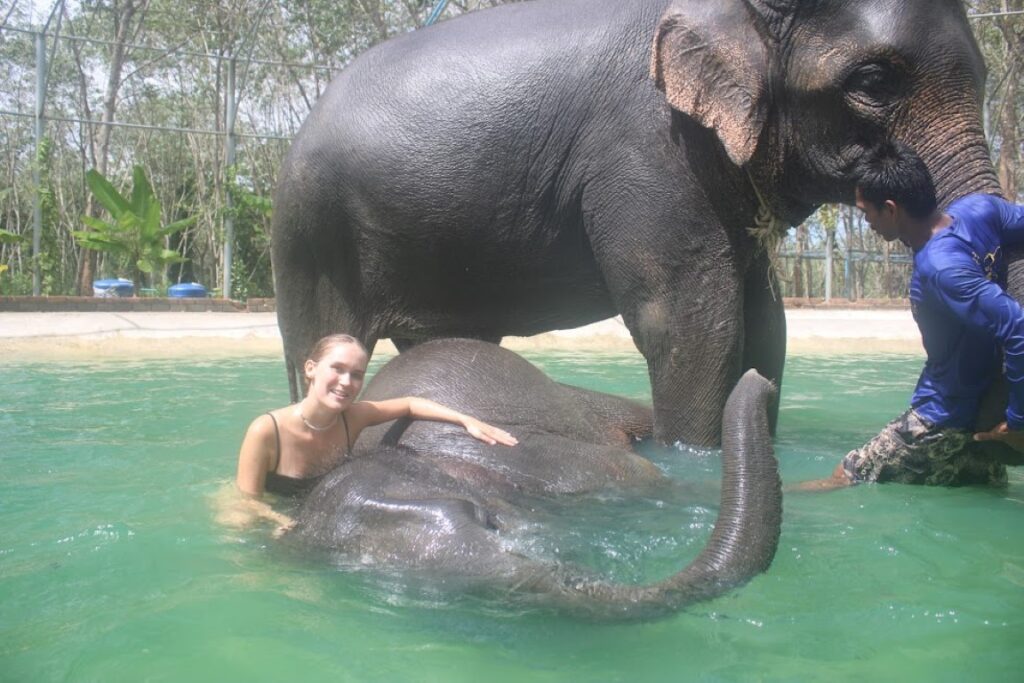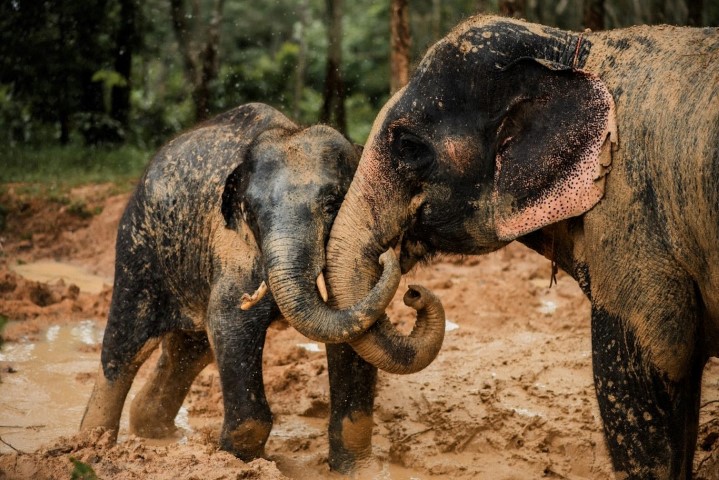1.Playfulness:
Like many young animals, baby elephants are playful. They engage in activities such as chasing each other, running around, and play-fighting. Play is crucial for their physical development, coordination, and social skills.
2.Close Bond with Mother:
Calves form a strong bond with their mothers and other female elephants in the herd. They stay close to their mothers for protection, nourishment, and guidance. The mother plays a crucial role in teaching the calf about survival and social behavior..
3.Learning:
Baby elephants are highly intelligent and curious. They learn by observing and mimicking the behavior of older elephants in the herd. This learning process is essential for acquiring skills necessary for survival in the wild.
4.Mimicking Adult Behavior:
Calves often mimic the actions of adult elephants, such as mock charging, using their trunks, and even attempting to dust themselves with dirt or mud. This behavior helps them develop essential skills they will need as adults.
5.Nursing:
Like other mammals, baby elephants depend on their mother’s milk for nutrition and growth. Calves nurse for an extended period, often up to two years or more. During this time, they may continue to suckle intermittently even after starting to consume solid food.
6.Vocalizations:
Baby elephants communicate with their mothers and other herd members through vocalizations. These can include trumpets, rumbles, and other sounds. Communication is crucial for maintaining social bonds within the herd and for coordinating group activities.
7.Exploration:
Calves are naturally curious, and they explore their surroundings with their trunks and mouths. They use their trunks to touch, smell, and grasp objects, helping them learn about their environment.
8.Vulnerability:
Despite their size, baby elephants are vulnerable to predators, and their mothers and the rest of the herd play a protective role. Calves often stay in the middle of the herd for safety.
It’s important to note that the behavior of baby elephants can vary, and each individual may have unique traits and personalities. Additionally, these behaviors contribute to the social structure and dynamics within the elephant herd, which is essential for the well-being and survival of these intelligent and social animals.






